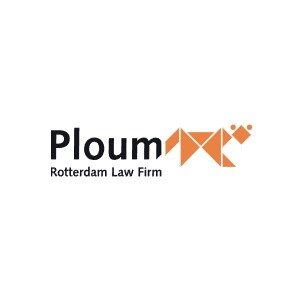Best Climate Change Law Lawyers in Rotterdam
Share your needs with us, get contacted by law firms.
Free. Takes 2 min.
List of the best lawyers in Rotterdam, Netherlands
About Climate Change Law in Rotterdam, Netherlands
Climate Change Law in Rotterdam addresses the legal frameworks, regulations, and policies aimed at combating the effects of climate change and promoting sustainability. As the largest port city in Europe and a region highly vulnerable to rising sea levels, Rotterdam plays a vital role in Dutch and European climate policy. The city is at the forefront of adapting to climate risks, implementing energy transition strategies, and enforcing environmental standards to reduce greenhouse gas emissions. Climate law in Rotterdam is influenced by both national legislations, such as the Dutch Climate Act, and international agreements, including the Paris Agreement and EU directives, as well as specific local initiatives striving for a more climate-resilient urban environment.
Why You May Need a Lawyer
Climate Change Law often involves complex regulations, overlapping legal frameworks, and significant legal responsibilities for businesses, property owners, and citizens. You may require a lawyer specialising in Climate Change Law in the following situations:
- Navigating compliance with new environmental regulations for property development or business operations.
- Challenging or responding to enforcement actions from environmental authorities.
- Seeking permits or exemptions related to emissions, construction, or industrial activities.
- Dealing with disputes regarding environmental damages, such as flooding or pollution caused by climate-related events.
- Participating in public consultation or objecting to plans and policies that affect your business, property, or neighbourhood.
- Understanding liability and responsibilities for adaptation and mitigation measures.
- Engaging in legal actions related to green investments, renewable energy projects, or sustainability initiatives.
Local Laws Overview
Rotterdam is subject to various layers of climate legislation, including Dutch national law, EU regulations, and its own local policies. Key aspects relevant to Climate Change Law in the city include:
- Dutch Climate Act: Sets binding targets for reducing greenhouse gas emissions, in line with the Paris Agreement.
- Environmental Management Act (Wet milieubeheer): Governs environmental protection, including energy efficiency, air quality, and waste management.
- Omgevingswet (Environmental Planning Act): Streamlines spatial planning, environmental regulations, and sustainability measures at the local level, effective nationwide from 2024.
- Rotterdam Climate Initiative: A local program aiming for a climate resilient and sustainable city by reducing CO2 emissions and adapting to climate threats (like sea level rise).
- Port of Rotterdam Regulations: Additional rules for maritime, industrial, and logistics operations to ensure the port remains sustainable and compliant with EU and global climate standards.
- Energy Transition Policies: Local and national policies incentivising renewable energy, phasing out fossil fuels, and supporting sustainable urban infrastructure.
Frequently Asked Questions
What is Climate Change Law?
Climate Change Law involves all legal rules, policies, and guidelines aimed at mitigating or adapting to the effects of climate change. It covers a wide range of issues, from emission reductions to sustainable development and disaster preparedness.
Who enforces Climate Change regulations in Rotterdam?
Climate-related laws in Rotterdam are enforced by national agencies, the municipality of Rotterdam, regional water authorities, and the Environmental Protection Agency for the Rijnmond region (DCMR). The European Union also plays a role in setting standards.
Do individuals have legal responsibilities for climate change in Rotterdam?
While businesses face stricter regulations, individuals may be affected by requirements for energy efficiency in homes, waste separation, or urban greening projects. Homeowners may need to comply with flood prevention standards or sustainable renovation rules.
How does Rotterdam address rising sea levels?
Rotterdam employs an integrated climate adaptation approach, including investing in dikes, flood barriers, water squares, and green roofs. Legal obligations for flood risk management are defined at both the municipal and national level.
What permits are required for green energy projects in Rotterdam?
Permitting depends on the size and type of project. Solar panels, wind turbines, or geothermal installations generally require environmental permits. The Omgevingswet will further streamline these processes.
Can I object to climate-related decisions affecting my property or business?
Yes, you can submit objections as part of public consultations on zoning, development, or environmental plans. If unsatisfied, you have the right to appeal decisions in administrative courts.
What should businesses know about climate reporting in Rotterdam?
Certain businesses are required to report on their environmental impact, energy use, and climate risks. Rotterdam encourages voluntary sustainability reporting but some industries must comply under EU and Dutch law.
Are there incentives to support green investments in Rotterdam?
Yes, Rotterdam offers various subsidies, tax incentives, and grants for energy efficiency, emissions reduction, and sustainable construction, often in cooperation with national programs.
What are the penalties for violating climate laws in Rotterdam?
Penalties can include warnings, fines, remediation orders, or even closure of non-compliant activities. Severity depends on the specific offense and its impact on the environment or public safety.
How can I stay updated on changes in Climate Change Law in Rotterdam?
Regularly review updates from the municipality of Rotterdam, the national government, and relevant regulatory agencies. Consulting a specialised lawyer is also recommended to ensure you remain compliant with the latest obligations and opportunities.
Additional Resources
The following organizations and authorities can provide further guidance and information on Climate Change Law in Rotterdam:
- Municipality of Rotterdam (Gemeente Rotterdam) - Climate and Sustainability Department
- Netherlands Enterprise Agency (RVO) - Sustainable business and subsidy programs
- Environmental Protection Agency Rijnmond (DCMR) - Regional regulatory body
- Delta Programme Commissioner - Information on national climate adaptation strategy
- Dutch Ministry of Infrastructure and Water Management
- Local bar associations and law firms specialising in environmental and climate law
- NGOs such as Natuur & Milieu and Milieudefensie
- Legal clinics at local universities
Next Steps
If you believe you need legal assistance regarding Climate Change Law in Rotterdam, consider the following steps:
- Identify your specific issue and gather all relevant documents, such as permits, legal notices, and correspondence.
- Contact a lawyer or legal advice centre specialising in climate and environmental law. The Dutch Bar Association can help you find qualified professionals in Rotterdam.
- Consult public resources from the municipality and relevant agencies to understand your rights and obligations.
- Participate in community information sessions or webinars on sustainability and climate regulations.
- Act quickly, especially if you have received a notice from authorities or face deadlines for compliance or appeal.
- Maintain open communication with regulators, and do not hesitate to seek clarification or request guidance from legal professionals.
Seeking timely and specialised legal advice can help you navigate the complexities of Climate Change Law, achieve compliance, and contribute to Rotterdam’s sustainability goals.
Lawzana helps you find the best lawyers and law firms in Rotterdam through a curated and pre-screened list of qualified legal professionals. Our platform offers rankings and detailed profiles of attorneys and law firms, allowing you to compare based on practice areas, including Climate Change Law, experience, and client feedback.
Each profile includes a description of the firm's areas of practice, client reviews, team members and partners, year of establishment, spoken languages, office locations, contact information, social media presence, and any published articles or resources. Most firms on our platform speak English and are experienced in both local and international legal matters.
Get a quote from top-rated law firms in Rotterdam, Netherlands — quickly, securely, and without unnecessary hassle.
Disclaimer:
The information provided on this page is for general informational purposes only and does not constitute legal advice. While we strive to ensure the accuracy and relevance of the content, legal information may change over time, and interpretations of the law can vary. You should always consult with a qualified legal professional for advice specific to your situation.
We disclaim all liability for actions taken or not taken based on the content of this page. If you believe any information is incorrect or outdated, please contact us, and we will review and update it where appropriate.














